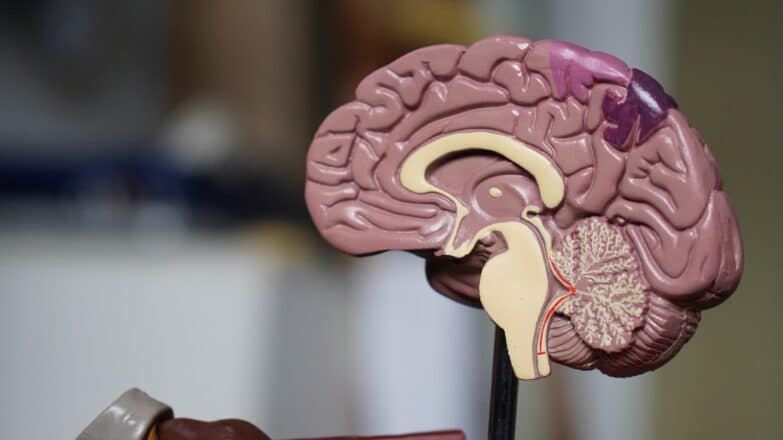Living with Alzheimer’s or another form of dementia can be a complex journey, fraught with challenges that millions in the United States face in their own homes every day. The responsibility of caregiving often lands on the shoulders of family members and friends, a task that while fulfilling can also be notably burdensome. Some recent studies, such as one by Johns Hopkins, even highlight the unmet dementia-related care needs of around 97% to 99% of patients. However, understanding and acceptance of a dementia diagnosis accompanied by utilizing assistive devices at home, self-care, and external assistance from Dementia Care Coordinators can work wonders in managing the symptoms and complications of the disease. With their support in addressing safety issues, medical needs, medication management, and nutritional help, coupled with resources like medical alert programs and community-based elder and dementia care services, home becomes a perfectly suitable environment for individuals with dementia to continue residing in, even as the disease progresses. Even so, families may consider looking to communities designed with older residents in mind, complete with features to aid home care, as an alternate solution. After all, the choice between home care and a living facility depends fundamentally on individual requirements, desires, and a family’s unique situation.
Understanding Alzheimer’s and Dementia
From slowing down of thought processes to memory impairment, Alzheimer’s and dementia can impact a person’s life in countless ways.
Recognizing the signs and symptoms
Notable signs and symptoms include difficulties with problem-solving, reduced concentration, mood swings, and feeling confused about time and place. Crises of confidence, memory loss, and increasingly dependent behavior are also common.
Accepting the diagnosis and prognosis
Accepting a diagnosis of Alzheimer’s or dementia can be challenging, not just for the affected individuals but also for their families and friends. But acceptance is the first step towards providing effective care. It’s crucial to understand the prognosis and the impending health changes, which can enable you to plan better and prepare for the journey ahead.
Assessing Personal and Environmental Challenges
While staying at home can be comforting for dementia patients, it can bring numerous challenges.
Living with Alzheimer’s or dementia at home: What it entails
Living at home, even in advanced stages of dementia, involves managing symptoms, such as memory issues, in a familiar environment. It entails taking necessary steps to ensure safety, comfort, and a sense of normalcy, despite the disease.
Understanding the potential risks and hazards at home
Home is where the heart is, but it can also be a place filled with potential risks and hazards for those with Alzheimer’s or dementia. From sharp objects in the kitchen to loose rugs or wet floors, these hazards must be minimized to maintain a safe environment.
Evaluating the patient’s overall health condition and behaviors
This is not limited to physical health alone but also encompasses mental and emotional well-being. Behavioral changes are common in dementia patients. Understanding these changes can help in managing them more effectively.

Equip the Home for Safety and Convenience
Making the home dementia-proof is key to the safety and convenience of the affected person.
Installing assistive devices
These devices, such as grab bars, memory clocks, or medication dispensers, can significantly enhance the home’s safety, making it more dementia-friendly.
Making necessary modifications in the living space
Considerations might include removing loose rugs, cutting back on clutter, and setting up a special safe zone for the patient.
Determining suitable areas for activities and rest
Identifying areas suitable for active engagement and rest plays a crucial role in ensuring quality of life for the patient.
The Role of Dementia Care Coordinators
These healthcare professionals play a pivotal role in dementia care at home.
Understanding their roles and responsibilities
They essentially manage the care plan, ensuring its effective execution. They can help manage symptoms and medical needs, provide education and resources, and ensure the best possible quality of life.
How they can help in managing the care at home
From managing medications and nutrition to coordinating with healthcare professionals and addressing safety concerns, care coordinators can bring much-needed help and support to you and your loved ones.
Finding and hiring a trustworthy Dementia Care Coordinator
When hiring this professional, ensure compatibility with the patient, check credentials and references, and ask about experience in managing dementia specifically.

Effective Management of Medication and Nutrition
This can remarkably impact the overall wellbeing of the patient.
Monitoring the medication regime
A well-coordinated medication regime can manage symptoms and slow disease progression, which goes a long way towards maintaining quality of life.
Ensuring a balanced and nutritious diet
Maintaining a balanced diet is crucial for those with dementia. Good nutrition can boost immunity, improve mood and energy levels, and promote overall health.
Working with a Dementia Care Coordinator for efficient management
These professionals can help ensure that all the nutritional needs and medication requirements are being met effectively.
Using Medical Alert Programs
These programs can be crucial in maintaining safety for those with dementia at home.
Understanding how medical alert programs work
These programs typically include wearable devices that can call for help in case of emergencies.
Choosing the best medical alert program
Consider factors such as the ease of use, the coverage range, and the quality of customer service while choosing an alert program.
Ensuring the safety and emergency response for dementia patients at home
Opting for an alert program with built-in GPS and fall detection can add an extra layer of protection.

Leveraging Elder Care and Dementia Care Services
These services can be a valuable resource for ensuring quality care and respite for caregivers.
Exploring available community-based services
Many communities have organizations that arrange activities, programs, and services for elderly individuals and especially those living with dementia.
Balancing personal care with social activities
While personal care is undoubtedly important, social interaction also plays a key role in maintaining the emotional health of dementia patients.
Giving respite to caregivers through these services
These services can provide much-needed breaks for caregivers, ensuring that they can continue caring for their loved ones without feeling overwhelmed.
Providing Care as Dementia Progresses
As dementia progresses, the needs of the patient will likely change.
Managing changes in behavior and health condition
Dementia can bring about various behavioral changes, such as mood swings, agitation, depression, or apathy. Being equipped to manage these changes is integral to providing effective care.
Balancing the needs of the patient and the caregiver
While it’s crucial to meet the needs of the dementia patient, self-care for the caregiver is also essential to avoid burnout and maintain overall wellbeing.
Maintaining quality of life at advanced stages
Even in the advanced stages, the right care strategies and supportive interventions can help maintain quality of life.
Considering a Move to a Senior-Focused Community
While home care is desirable for many, moving to a community geared toward older residents may be a better option for some.
Evaluating the pros and cons
Such communities often offer organized care, numerous activities, and safety features. However, they also involve changes that might be challenging for the individual.
Understanding when and why it might be a better option
If the demands of home care become too great, or if the person with dementia could benefit from more specialized care and socialization opportunities, it might be time to consider this option.
Finding a community with dementia-friendly features
A community with features like nonslip tubs, dementia-friendly activities, and trained care staff can offer a supportive environment for those with dementia.
Choosing Between Home Care and Residential Care
This is a deeply personal decision based on several factors.
Understanding the differences between the two care options
While home care often provides familiar surroundings and a personalized environment, residential care offers a structured routine, active social life, and professional 24-hour care.
Assessing individual needs and family circumstances
The specific needs of the individual, the extent of the disease progression, and the family’s ability to provide care are all critical considerations.
Decision-making processes and discussions with all involved
Open and honest discussions with family members, healthcare providers, and the person with dementia, where possible, can guide this decision-making process. It’s all about exploring all available options and making the best choice for the individual and the family.
